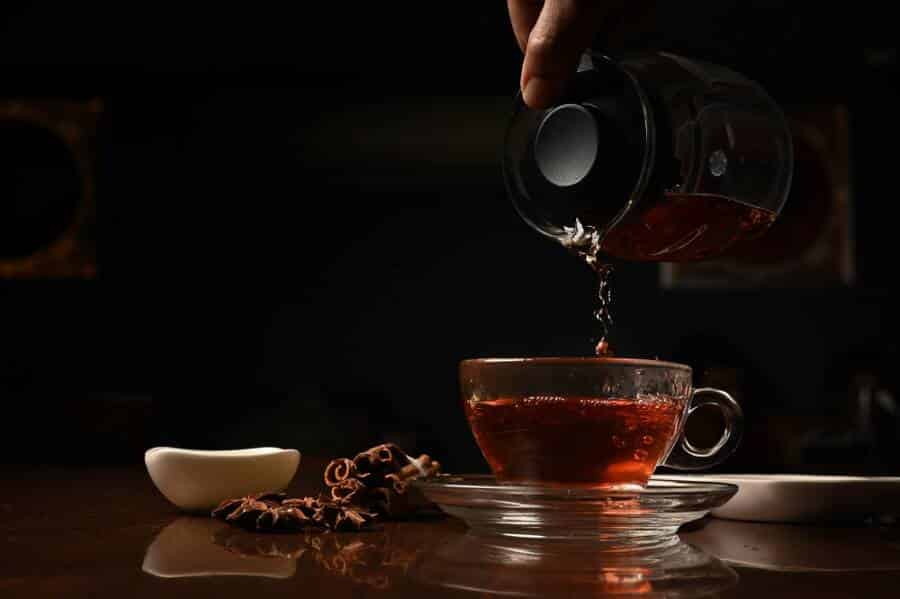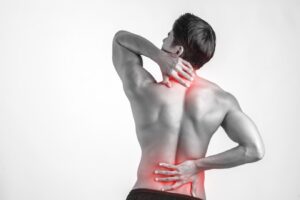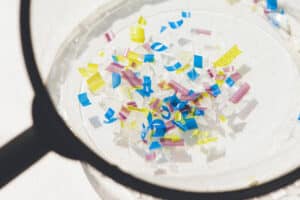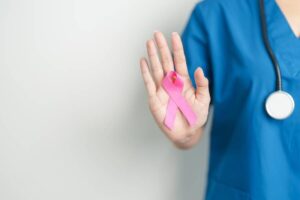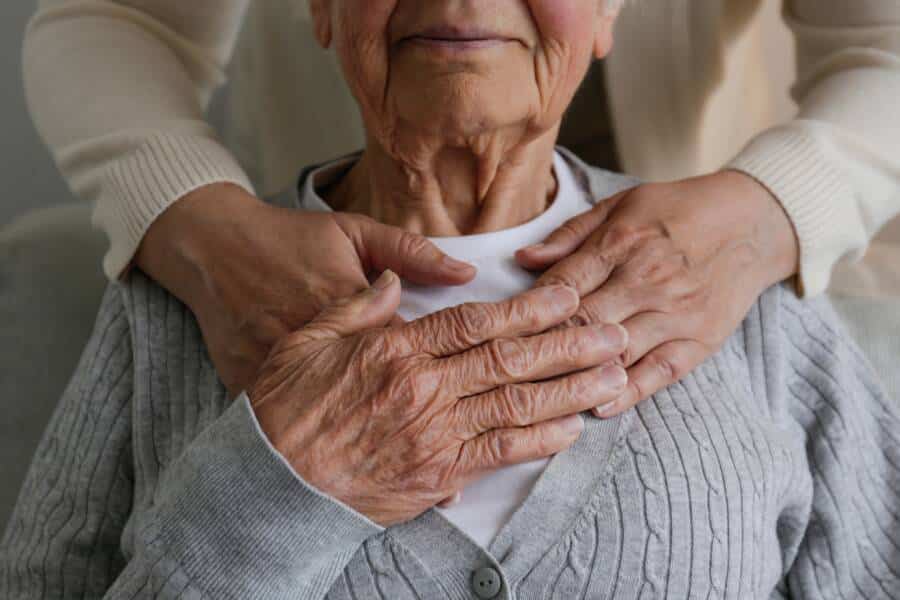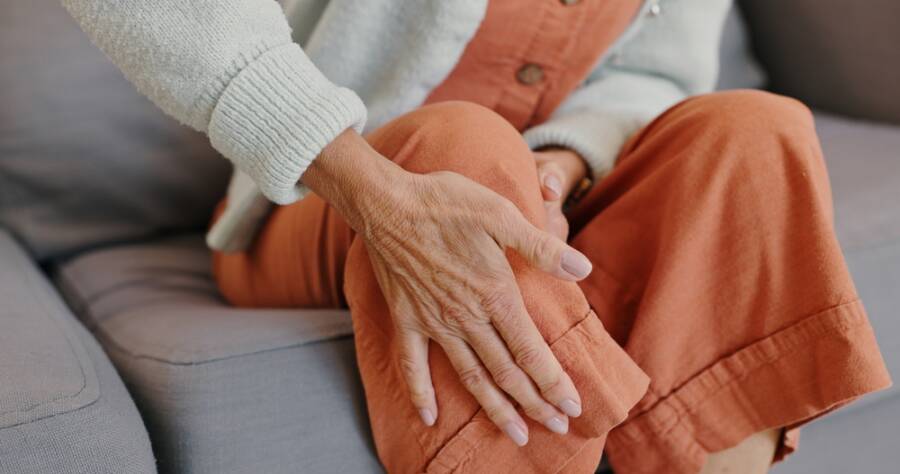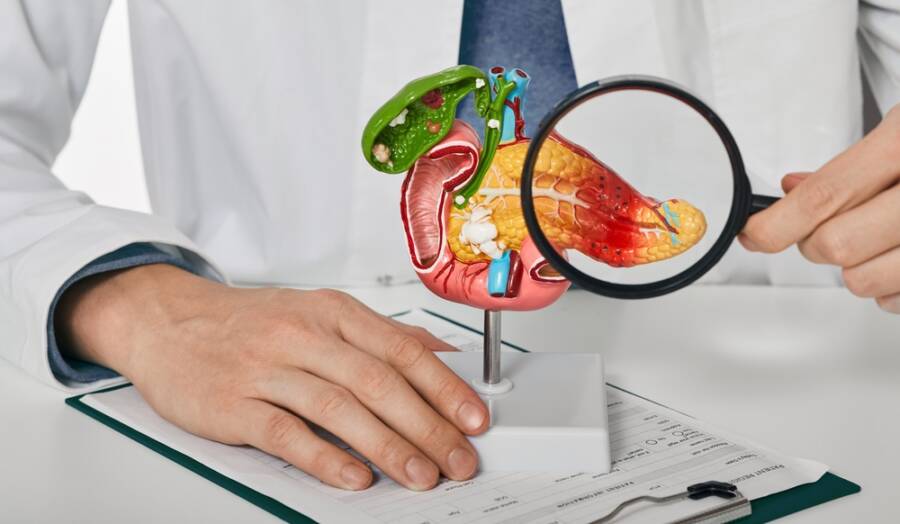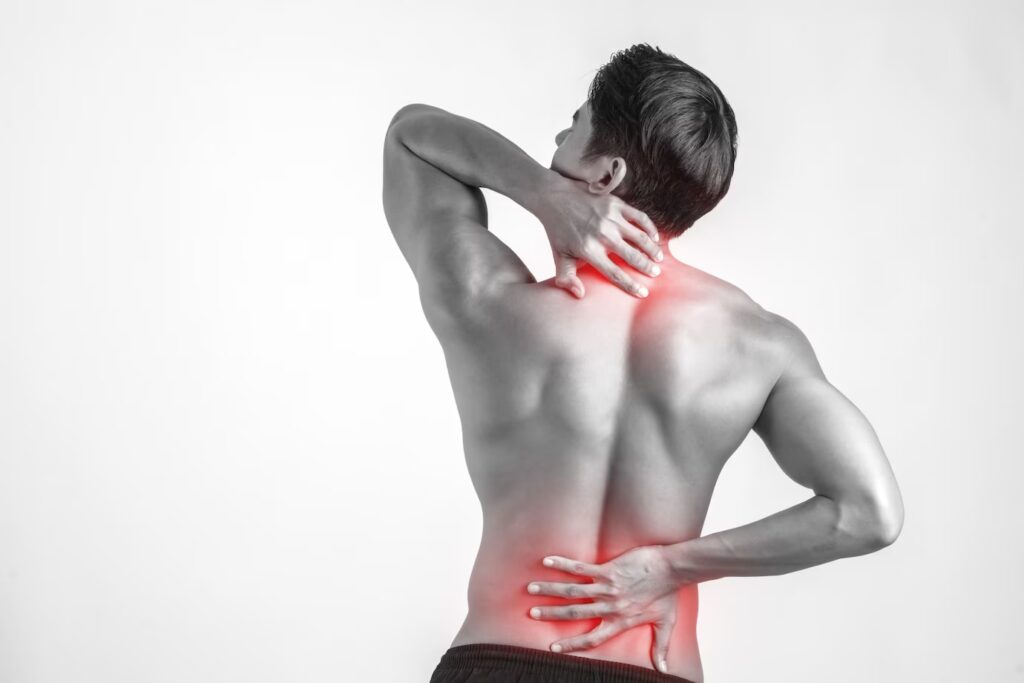The Canadian Mental Health Association states that 50% of the world population will have or have already had a mental illness by the age of 40. What’s more, anxiety is the most common mental illness in the U.S. as it affects more than 40 million adults, the Anxiety and Depression Association of America reports.
Regular physical activity, therapy, medication and a balanced lifestyle are all great options that help you cope with anxiety – and there’s plenty of anxiety among all of us these days.
However, there’s one more thing that can raise anxiety even on the short term. Once again, the secret lies in the foods and beverages you consume as well. Today, we’ll have a look at 8 of the most dangerous foods that can actually worsen your anxiety symptoms.
Unfortunately, the first item on the list is…
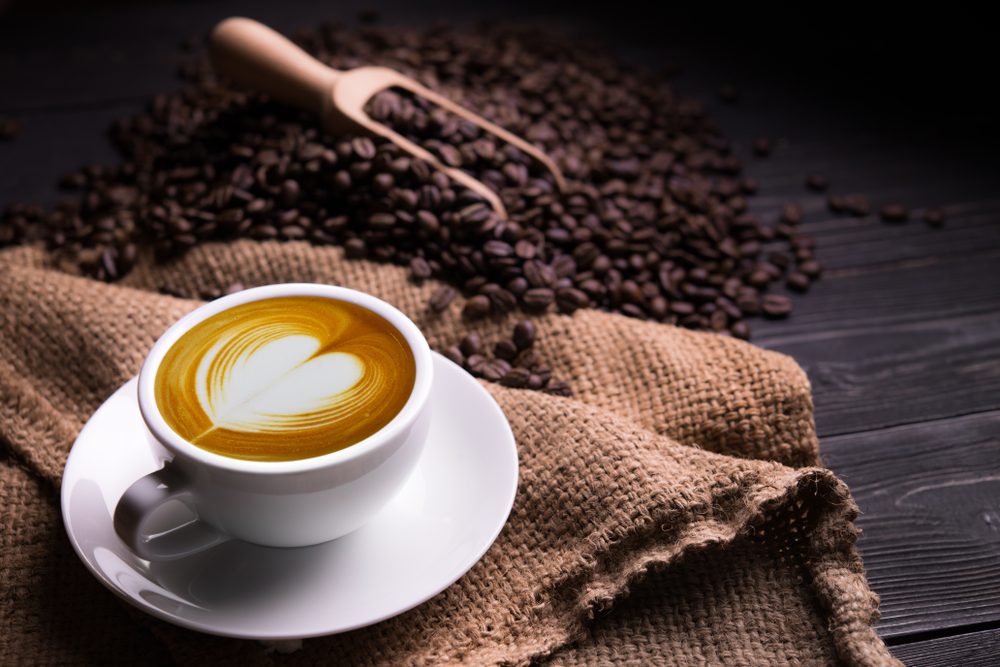
Are any of these foods making YOUR anxiety worse?
Coffee
In regards to anxiety, this delicious beverage can do more harm than good. When consumed in excess, caffeine can cause similar reactions in your body to a scary event. Why?
Adrenaline.
Su-Nui Escobar, PhD, RDN, spokesperson for the Academy of Nutrition and Dietetics, says that caffeine can release cortisol, a stress hormone known for increasing your heart rate and blood pressure. This hormone is also partially responsible for anxiety and insomnia.
Although you may only drink one cup of coffee per day, there are also plenty of foods that contain caffeine. Some of the most common options are energy drinks, chocolate, soda or desserts like cake. You can reduce your daily caffeine intake by consuming herbal teas, decaf coffee or dark chocolate.
White bread
Or anything that is made using white flour for that matter. White bread, rice and processed pasta are all highly processed which increases their sugars content.
As Escobar explains, such foods can immediately cause what we know as a ‘sugar rush.’ The blood sugar levels in your body spike and drop unusually fast which can increase anxiety.
Note that sugar also activates the same pleasure centers as cocaine; while it’s not nearly as bad, it can still become addictive and cause a ‘sugar crush’ that affects your mood tremendously.
Fried foods
This list seems to get worse and worse, right?
If you think you might be dealing with anxiety, though, it’s best to cut fried foods off your diet as well.
Fried foods are commonly linked to heart disease – the number one cause of death among Americans. For example, a 2015 study published in the journal Nutrients found that eating fried foods at least four times a week can increase the long-term risk for type 2 diabetes, obesity, hypertension and heart failure.
All of these effects can translate into a higher risk for depression and anxiety. A better alternative is to go for foods that contain monosaturated and polyunsaturated fat and simply bake or boil potatoes instead of frying them.
Fruit juice
What? Even fresh orange juices are harmful now?
Well, they could be.
Almost every fruit juice that you buy in a supermarket is 10% fruit and 90% sugar – and that’s a fact. You can make sure that you’re choosing a healthy alternative only if you read the label and actually know what all those fancy names really mean.
Even if you squeeze the juice at home, things may not be any better. Let’s think about it for a second: how many whole oranges could you eat at once? Chances are, you can’t eat four oranges which is how much you’d squeeze for a decent amount of juice.
Drinking juice still provides you with plenty of sugar that causes a spike in blood sugar levels – even though it’s natural sugar such as fructose.
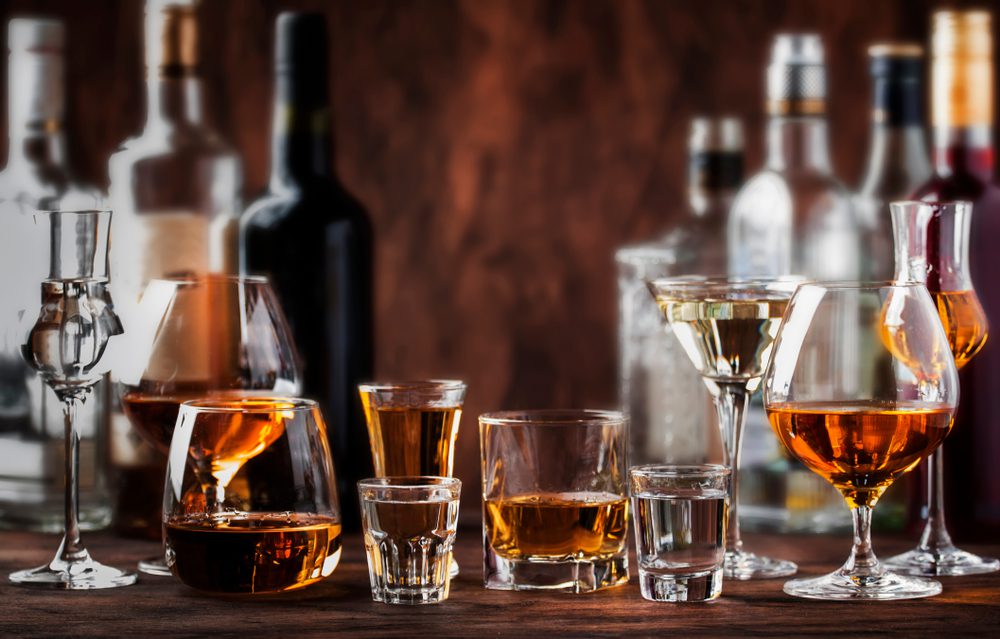
Alcohol
Consuming a glass of wine to relax after a long day doesn’t come with any health risks. However, increased amounts of alcohol consumed regularly can have the exact opposite effect.
According to the current Dietary Guidelines, women should consume one drink per day and men should ideally stick to two drinks daily. This is the equivalent of 12 fluid ounces of beer with 5% of alcohol, five ounces of wine or 1.5 ounces of distilled spirits.
Drinking alcohol excessively can also cause dehydration, loss of focus and fatigue – all of which can contribute to anxiety.
Ketchup
A single tablespoon of ketchup contains 12 calories of added sugar.
Sharon Zarabi, RD, bariatric program director at Lenox Hill Hospital in New York City, admits that sugar is found in almost everything we get at a supermarket nowadays. What tricks most people is thinking that sugar is only found in sweet treats, which is not true! Zarabi explains it best:
‘Don’t be fooled to think that something needs to taste sweet to contain sugar, since sugar is concealed in the ingredient list with other forms of molasses, high fructose corn syrup, rice, syrup, brown syrup, invert sugar, granulated, table, and anything ending in -ose.’
In fact, even over-the-counter painkillers are coated in sugar. Does that mean we can’t escape the negative impact of this dangerous ingredient? No.
It just means that we should consume everything in moderation and design a balance diet that suits our lifestyle. Not only does this help us stay healthy, but it also gives us piece of mind which can reduce the risk for anxiety in the long run.
Chocolate
If you consume chocolate in moderation, you may be pleasantly surprised that your mood will improve considerably – and not just because of its flavor. Healthy, organic chocolate offers plenty of antioxidants that help you fight off bacteria and viruses while regulating different functions throughout the body (including your mood).
However, too much chocolate can bring that sugar rush we talked about earlier, which is a huge mood killer for most people. Unless you can stick to one or two bites per day, it’s best to cut chocolate from your diet altogether.
Dr. Escobar also recommends you to pair this type of treat with a little fat and protein. For example, you can have some Greek yogurt mixed with fresh fruit like blueberries, peanut butter (for healthy fats) and some chocolate chips on top.
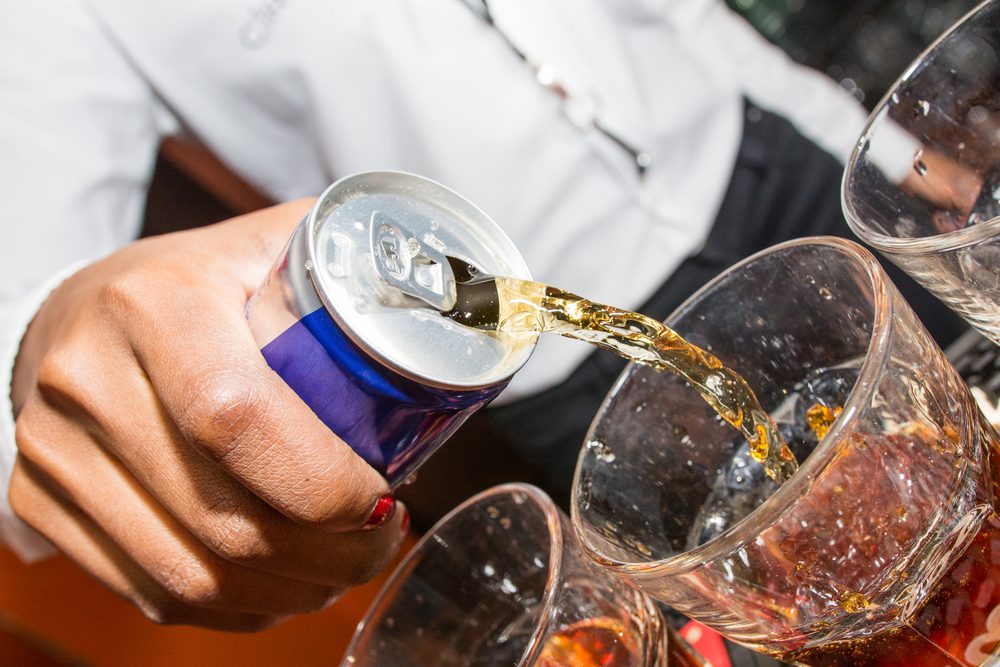
Energy drinks
Why do you think energy drinks are so effective in giving you energy?
These beverages literally contain pure, concentrated caffeine. A single shot (two ounces) of an energy drink contains 200 milligrams of caffeine; that’s about the same as a Cold Brew from Starbucks!
A 2016 review published in the Journal of Caffeine Research proved that consuming energy drinks is commonly linked with mental health problems such as stress, depression and – you guessed right – anxiety.
Aside from giving you that crazy jittery sensation, energy drinks also increase your heart rate and blood pressure. Furthermore, the American College of Cardiology warns that these beverages can literally alter the electrical activity of your heart and in rare cases they could cause seizures.
If you really need some energy right away, a cup of coffee is infinitely better in terms of health and nutrient intake.
Have you ever suffered from anxiety before? If so, what do you think helped the most to manage your condition? Share your journey in the comment section, and let’s keep our minds, body, and heart healthy.
If you found this article useful, we also highly recommend reading: 9 Foods You Should NEVER Mix with Your Medication


